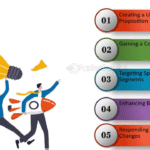The Landbouw Economisch Instituut (Agricultural Economic Institute) plays a crucial role in shaping modern farming practices through economic research, policy analysis, and sustainability assessments. As agriculture evolves with technological advancements and environmental challenges, institutions like these provide the necessary insights to balance productivity, profitability, and ecological responsibility.
This article explores how the Landbouw Economisch Instituut contributes to modern farming, focusing on key areas such as precision agriculture, sustainable farming, policy development, and market trends. By understanding its influence, farmers, policymakers, and agribusinesses can make informed decisions that drive the future of agriculture.
Landbouw Economisch Instituut in Agricultural Economics
Agricultural economics is the backbone of efficient farming systems. The Landbouw Economisch Instituut specializes in analyzing economic factors that influence farming, including:
- Cost-benefit analysis of new farming technologies.
- Market trends affecting crop and livestock prices.
- Policy impacts on subsidies, trade, and rural development.
- Risk management for climate change and price volatility.
By studying these aspects, the institute helps farmers optimize their operations while ensuring long-term sustainability.
Modern Farming Practices Influenced by Economic Research
1. Precision Agriculture & Smart Farming
One of the biggest shifts in modern agriculture is precision farming, which uses data-driven techniques to maximize efficiency. The Landbouw Economisch Instituut evaluates the economic viability of technologies such as:
- GPS-guided machinery for optimized planting and harvesting.
- Drones and sensors for soil and crop monitoring.
- AI-driven analytics for pest control and irrigation management.
Economic studies help determine whether these technologies provide a return on investment (ROI) for small and large-scale farmers.
2. Sustainable Farming & Circular Agriculture
With growing environmental concerns, the institute promotes circular agriculture, where waste is minimized, and resources are reused. Key areas of focus include:
- Reducing nitrogen emissions through better livestock management.
- Organic farming incentives and their economic impact.
- Renewable energy integration (e.g., solar-powered farms).
By analyzing the costs and benefits of sustainable practices, the institute guides farmers toward eco-friendly yet profitable methods.
3. Policy Recommendations & Subsidy Optimization
Government policies heavily influence farming success. The Landbouw Economisch Instituut assesses:
- EU Common Agricultural Policy (CAP) and its effects on Dutch farmers.
- Subsidy allocations for sustainable practices.
- Trade regulations impacting export and import dynamics.
These insights ensure that policies support fair pricing, food security, and innovation in agriculture.
4. Digital Transformation & Agri-Tech Investments
The rise of agri-tech startups and digital platforms has transformed farming. The institute examines:
- Blockchain for supply chain transparency.
- Farm management software for real-time decision-making.
- Automation in greenhouse farming.
By evaluating economic feasibility, the institute helps farmers adopt cost-effective digital tools.
Challenges & Future Directions
Despite advancements, modern farming faces challenges:
- High initial costs of advanced machinery.
- Climate change risks affecting crop yields.
- Labor shortages due to automation.
The Landbouw Economisch Instituut addresses these by researching:
- Alternative financing models for small farmers.
- Climate-resilient crop strategies.
- Training programs for tech-driven farming.
Conclusion
The Landbouw Economisch Instituut is a vital force in modernizing agriculture through economic research, policy guidance, and sustainability analysis. By bridging the gap between traditional farming and innovation, it ensures that agriculture remains productive, profitable, and environmentally responsible.
Farmers, policymakers, and agribusinesses must leverage its insights to navigate the evolving agricultural landscape successfully.









